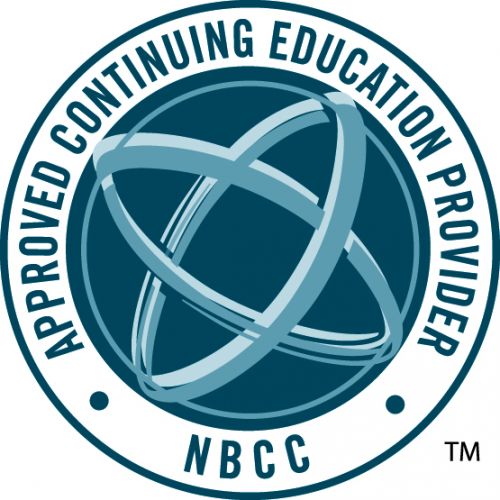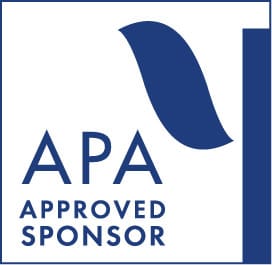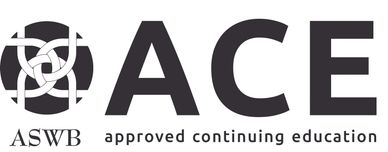Narcissism and Narcissistic Personality Disorder
Louis R. Franzini, PhD
$29.00
 Learning Level : Intermediate
Learning Level : Intermediate
 Online
Online
Course Abstract
Narcissism and Narcissistic Personality Disorder is a 2-hour online continuing education (CE) course that distinguishes between the informal labeling of narcissistic behaviors and attitudes, and the applications of the DSM criteria for a formal clinical diagnosis of narcissistic personality disorder (NPD).
Narcissistic personality disorder (NPD) is a psychological disorder characterized by persistent patterns of grandiosity, fantasies of unlimited power or importance, and the psychic need for admiration or special treatment. Core cognitive, affective, interpersonal, and behavioral features appear in a pervasive pattern of interpersonal difficulties, occupational problems, and significant psychosocial distress, such as impulsivity, volatility, attention-seeking, low self-esteem, and unstable relationships.
We will examine therapeutic approaches, such as the MOTHER technique, Dialectical Behavior Therapy, and Cognitive Behavioral Therapy, in light of the case studies presented. We will discuss how to cope with close relationships in which one partner frequently acts narcissistically or qualifies for a formal personality disorder diagnosis. Having to cope with the narcissistic behaviors shown by someone close can itself be psychologically distressing.
Suicidality and comorbidities in NPD will also be considered.
Course #21-57 | 2023 | 38 pages | 15 posttest questions
Learning Objectives
- Distinguish between primary and secondary narcissism
- Differentiate between grandiose and vulnerable narcissism, noting the role of the oscillation hypothesis
- List the nine characteristics in DSM-5 of which at least five must be met to qualify for a diagnosis of NPD
- Name and describe the three additional diagnoses of personality disorders in the DSM-5
- Explain the cognitive behavior therapy approach to treating NPD
- Summarize the main distinguishing elements of dialectical behavior therapy
Course Directions
This online course provides instant access to the course materials (PDF download) and CE test. The course is text-based (reading) and the CE test is open-book (you can print the test to mark your answers on it while reading the course document).
Successful completion of this course involves passing an online test (80% required, 3 chances to take) and we ask that you also complete a brief course evaluation.
About the Author(s)
Louis R. Franzini, PhD : Find out More
Louis R. Franzini, PhD, received his B.S. degree in Psychology from the University of Pittsburgh, his M.A. degree in Clinical Psychology at the University of Toledo, and his Ph.D. in Clinical Psychology from the University of Pittsburgh. He then completed a Postdoctoral Fellowship in Behavior Modification at the State University of New York at Stony Brook (now Stony Brook University). Following the postdoctoral program Dr. Franzini joined the Psychology Department at San Diego State University, where he spent his entire academic career. He retired as Emeritus Professor of Psychology. His international academic experience included appointments as Distinguished Professor of Psychology at the Universite Catholique de Louvain, Louvain-le-Neuve, Belgium and Senior Fellow in the School of Accountancy and Business, Human Resource and Quality Management Division at Nanyang Technological University, Singapore. Dr. Franzini is licensed as a psychologist in Florida and in California.
Financial: Dr. Franzini receives royalties on his books from John Wiley & Sons, Rowman and Littlefield, Square One Publishers, Sage Publications and from Professional Development Resources on sales of his courses.
Nonfinancial: No relevant nonfinancial relationship exists.
CE Information
Counseling

Professional Development Resources (PDR) has been approved by the National Board for Certified Counselors (NBCC) as an Approved Continuing Education Provider, ACEP No. 5590. Programs that do not qualify for NBCC credit are clearly identified. PDR is solely responsible for all aspects of the programs.
Professional Development Resources is CE Broker compliant (#50-1635 - all courses are reported within two business days of completion). Professional Development Resources, Inc. is recognized by the New York State Education Department’s State Board for Mental Health Practitioners as an approved provider of continuing education for licensed mental health counselors (#MHC-0135 - Note: New York counselors will receive 2 continuing education credits for completing this self-study course).
Marriage and Family Therapy

Professional Development Resources is approved by the American Psychological Association (APA) to sponsor continuing education for psychologists. Professional Development Resources maintains responsibility for this program and its content. Professional Development Resources is also approved by the National Board of Certified Counselors (NBCC ACEP #5590); the Association of Social Work Boards (ASWB #1046, ACE Program); the New York State Education Department's State Board for Mental Health Practitioners as an approved provider of continuing education for licensed marriage and family therapists (#MFT-0100 - Note: New York MFTs will receive 2 continuing education credit(s) for completing this self-study course); the Texas Board of Examiners of Marriage and Family Therapists (#114); and is CE Broker compliant (#50-1635 - all courses are reported within two business days of completion).
Psychology

Professional Development Resources is approved by the American Psychological Association (APA) to sponsor continuing education for psychologists. Professional Development Resources maintains responsibility for this program and its content.
Professional Development Resources is CE Broker compliant (#50-1635 - all courses are reported within two business days of completion). Professional Development Resources, Inc. is recognized by the New York State Education Department’s State Board for Psychology as an approved provider of continuing education for licensed psychologists (#PSY-0145).
School Psychology

Professional Development Resources is approved by the American Psychological Association (APA) to sponsor continuing education for psychologists. Professional Development Resources maintains responsibility for this program and its content.
Professional Development Resources is CE Broker compliant (#50-1635 - all courses are reported within two business days of completion). Professional Development Resources, Inc. is recognized by the New York State Education Department’s State Board for Psychology as an approved provider of continuing education for licensed psychologists (#PSY-0145).
Social Work

Professional Development Resources, #1046, is approved as an ACE provider to offer social work continuing education by the Association of Social Work Boards (ASWB) Approved Continuing Education (ACE) program. Regulatory boards are the final authority on courses accepted for continuing education credit. ACE provider approval period: 6/12/2025 - 6/12/2028. Social workers completing this course receive 2 clinical continuing education credits. ACE format: Reading-based asynchronous distance learning.
Professional Development Resources is CE Broker compliant (#50-1635 - all courses are reported within two business days of completion). Professional Development Resources, Inc. is recognized by the New York State Education Department's State Board for Social Work as an approved provider of continuing education for licensed social workers (#SW-0664 - Note: New York social workers will receive 2 continuing education credit(s) for completing this self-study course). Professional Development Resources is also approved by the Texas State Board of Social Worker Examiners (#5678).
Customer Testimonials
Very informative and enjoyed the case studies.
Well written. Very helpful.
Great course on a complex subject.
I found this course quite helpful. I worked with Dr. Otto Kernberg earlier in my training and thought I had a solid understanding of NPD. However, I learned a lot from the more current research. Thank you!
In addition to covering the topics well, the author provided some much-needed skepticism regarding diagnosing persons with whom you are working. Excellent, well researched article.
More Testimonials
Great course. Very informative and I enjoyed the reading!
Thank you for offering this course. The material was well organized and relevant to clinical practice and assessment.
- ADHD
- Adults
- Alternative Medicine
- Alzheimers & Aging
- Animal-Assisted Therapy
- Autism
- Behavior Therapy
- Child & Adolescent
- Closeout
- Communication
- Couples-Family-Parenting
- Cultural Diversity
- Depression & Anxiety
- Domestic Violence
- Ethics & Risk Management
- Gender Identity
- HIV-AIDS
- Human Trafficking
- Laws & Rules
- Medical Errors
- Mindfulness & Yoga
- National Psychologist
- Nutrition & Fitness
- Psychotherapy
- Sexuality
- Substance Abuse
- Suicide
- Supervision
- Trauma & PTSD





